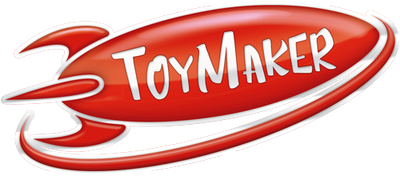Exploring the World of Music with Children's Musical Toys

Introduction
The world of children's toys is vibrantly diverse, but few can match the developmental and educational benefits of musical toys. Among these, piano toys stand out as both a gateway to musical understanding and a tool for cognitive enhancement.
Cognitive Benefits of Musical Toys
Musical toys, such as piano toys, offer a wide array of cognitive benefits that go beyond basic music learning. For instance, they can enhance memory and concentration. As children learn to remember melodies and play them on a piano toy, they are not just memorizing notes; they're also improving their short-term and long-term memory skills.
Furthermore, these toys can also aid in developing better coordination and fine motor skills. The act of pressing piano keys or manipulating different parts of a musical toy requires precise movements, helping children develop hand-eye coordination and dexterity.
Language development is another significant benefit. Engaging with musical toys often involves singing along or following verbal instructions, which can enhance vocabulary and language comprehension. A child who plays with a piano toy might also start to recognize patterns and sequences in music, which can translate to better literacy skills as they understand patterns in language.
Moreover, musical toys can also foster emotional intelligence. Learning to express themselves through music can help children understand and manage their emotions better. This emotional connection can be particularly seen in toys that allow for creative freedom, like a keyboard where they can create their own tunes.
In essence, musical toys like piano toys provide a multi-dimensional approach to cognitive development, benefiting areas ranging from memory and coordination to language skills and emotional intelligence. These toys offer a fun and engaging way for children to learn and grow.
The Power of a Children's Piano
Piano toys, specifically designed for young hands and minds, offer an introduction to musical concepts like melody, rhythm, and harmony. The 'La Granja De Zenon Children's Electronic Musical Keyboard Bus Piano Toy' is a prime example, providing an interactive and playful learning experience.
The power of a children's piano like the 'La Granja De Zenon Children's Electronic Musical Keyboard Bus Piano Toy' lies in its design and features, which are tailored to engage young minds. These piano toys are usually colorful and visually appealing, drawing a child's interest. They often have a variety of sounds and rhythms built-in, not only introducing children to different musical tones but also keeping their engagement high. The size and layout of the keys are designed for smaller hands, making it easier for children to use and thus fostering a sense of accomplishment and confidence. Additionally, many of these toys come with learning modes and interactive features, making the experience educational as well as fun. This type of piano toy bridges the gap between play and learning, providing an accessible introduction to musical concepts for young children.

A Journey from Newborn to Childhood
Starting from newborn toys that focus on basic sound recognition, the progression to more complex instruments like children's pianos represents a child's growing ability to interact with and understand music. These toys lay the foundation for a lifelong appreciation of music.
Choosing the Right Musical Toy
When selecting a musical toy, consider the age and developmental stage of the child. The 'La Granja De Zenon' piano toy caters to a broad age range, making it an ideal choice for families seeking a long-lasting, educational toy investment.
Conclusion
Introducing children to the world of music through toys is a journey filled with discovery and joy. As they tap on a piano toy, they're not just playing; they're learning, growing, and developing crucial cognitive skills.
